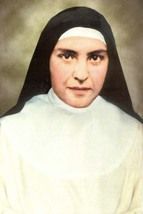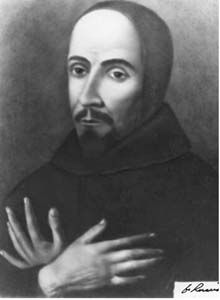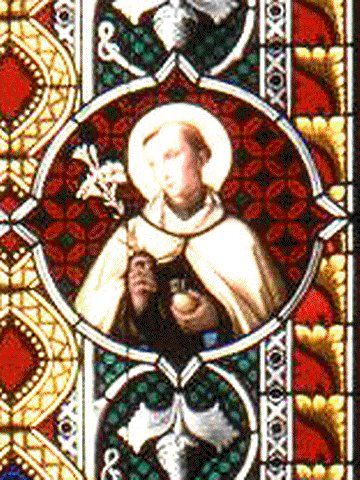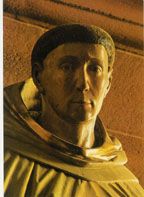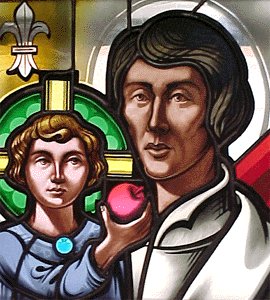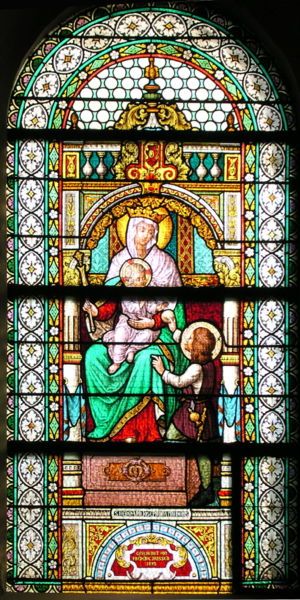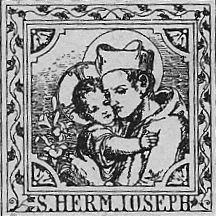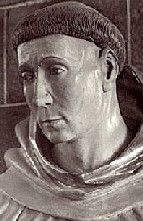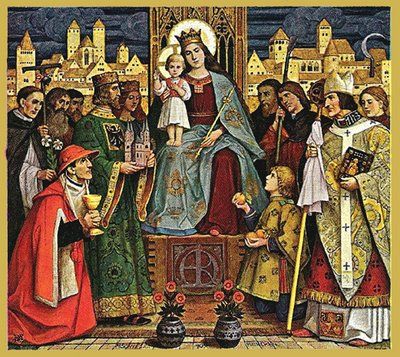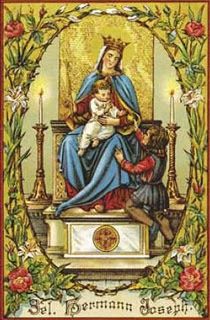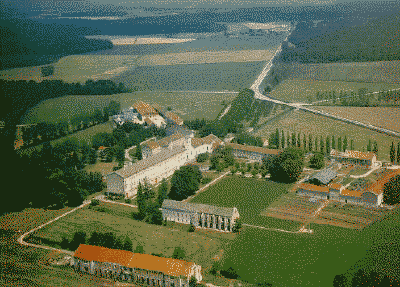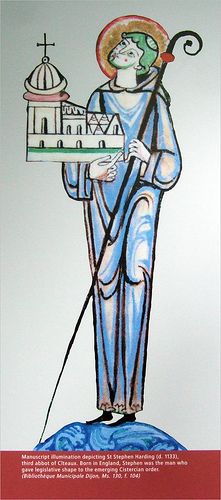In simplicity of
heart I gladly offer everything, O Lord.
The Lord put me on this path, he will remember to sustain me in battle.
To His mercy I entrust my frailty.
I saw in front of me a big cross..., I thought that my sacrifice was nothing in comparison to His.
I offered myself entirely and I do not withdraw the given word.
God's will whatever it may be, this is my joy, my happiness, my peace.
I will never be able to thank enough.
I cannot say but these words:" My God, your Glory."
(Blessed Maria Gabriella )
The Lord put me on this path, he will remember to sustain me in battle.
To His mercy I entrust my frailty.
I saw in front of me a big cross..., I thought that my sacrifice was nothing in comparison to His.
I offered myself entirely and I do not withdraw the given word.
God's will whatever it may be, this is my joy, my happiness, my peace.
I will never be able to thank enough.
I cannot say but these words:" My God, your Glory."
(Blessed Maria Gabriella )
Today we
celebrate the feast day of Blessed Maria Gabriella Sagheddu (1914-1939), a
Trappestine nun who gave her life in service of Christian unity. From the Trappist webiste: “But who is Blessed Maria
Gabriella? She is a young girl from Sardinia, in Italy, who died in 1939 at the
Trappist monastery of Grottaferrata on the outskirts of Rome, at the age of 25.
Like many another young man or woman she had accepted the gentle but compelling
call of God to give her youth and life to Him. She entered a poor and hidden
monastery and after three and a half years of prayer and penance died of the
tuberculosis which had sapped her strong constitution. The only thing she had
at her command was her life and this she offered as a holocaust to heal
divisions and make all Christians visibly "one" in Christ. Her brief
but total gift of herself was lived without any self-pity or regret. Outwardly,
her life was insignificant, but through a series of events hard to explain in
human terms, God used her to make known the beginning of the ecumenical
movement in Italy and then, in the late 30's, the universal call to Christian
Unity. In his encyclical "Ut unum sint" John Paul II pointed to her
as an outstanding example of spiritual ecumenism.”
Blessed
Maria was born in Sardinia, to a family of shepherds. She was an obstinate and critical child, finding fault in most
everything, and protesting and rebelling against her parents. With their gentle persuasion, she grew into
a loyal and obedient young woman, and at the age of 18 became involved in the
local Catholic youth movement, “Azione Cattolic.” She later reported this involvement to lead to a personal
encounter with the Lord, but refused to speak more specifically about the event. Rather, she dedicated herself to Him,
wishing a life of deep prayer and charity, and entering the Trappestine
monastery at Grottaferrata (near Rome).
There
her life appears to have been dominated by three elements: gratitude, desire to
respond to the grace of her calling with strength, and Christian Unity—to which
she dedicated her life. Upon acceptance
into the order, she gave herself over completely to the Lord, saying, “Now do
what You will.”
The overwhelming devotion to Christian unity espoused by Blessed Maria
appears to have stemmed from the encouragement of the leader of her religious
community, Father Paul Couturier. He
encouraged the community to pray for ecumenical unity during the Prayer for
Unity Octave, and from that moment, she demonstrated a single-mindedness in
offering both her prayers and her life to this cause. Maria sought to reduce the separation and disagreement between
Christian branches, uniting them in service to Christ.
At age 23, following her offering of her life to the Lord for this
cause, Maria was struck ill with tuberculosis.
Until that day, she had enjoyed perfect health. For 15 months, Maria spent her days in
agony, offering her suffering and life for unity. On April 23rd. 1939, her long agony ended in total abandonment to
the will of God. Her body, found
intact on the occasion of the recognition in 1957, now rests in a chapel
adjoining the monastery of Vitorchiano, where her community of Grottaferrata
transferred.
Pope John Paul II proclaimed:
Praying for unity
is not a matter reserved only to those who actually experience the lack of
unity among Christians. In the deep personal dialogue which each of us must
carry on with the Lord in prayer, concern for unity cannot be absent. Only in
this way, in fact, will that concern fully become part of the reality of our
life and of commitments we have taken on in the Church. It was in order to
reaffirm this duty that I set before the faithful of the Catholic Church a
model which I consider exemplary, the model of a Trappestine Sister,
Blessed Maria Gabriella of Unity, whom I beatified on 25 January 1983. Sister Maria
Gabriella, called by her vocation to be apart from the world, devoted her life
to meditation and prayer centered on Chapter 17 of Saint
John's Gospel and offered her life for Christian Unity. This is truly the
cornerstone of all prayer: the total and unconditional offering of one’s life
to the Father; through the Son, in the Holy Spirit. The
example of Sister Mara Gabriella is instructive; it helps us to understand that
there are no special times, situations, or places of prayer for unity. Christ's
prayer to the Father is offered as a model for everyone, always and everywhere."
Today, we join
the prayers of Blessed Maria Gabriella, in praying for Christian unity both
within our congregations and between the braches of the Churches of Christ.
0
God, eternal Shepherd, who inspired Blessed
Maria
Gabriella, virgin, to offer her life for the
unity
of all Christians, grant that through her
intercession,
the day may be hastened in which
all
believers in Christ, gathered around the table
of
your Word and of your Bread, may praise you
with
one heart and one voice. Through Christ
our Lord.
Prayer for Christian Unity
Lord God, eternal Shepherd,
You inspired the blessed virgin, Maria Gabriella, generously to offer up her
life for the sake of Christian unity. At her intercession, hasten, we pray, the
coming of the day when, gathered around the table of Your word and of Your
Bread from heaven, all who believe in Christ may sing Your praises with a
single heart, a single voice.













